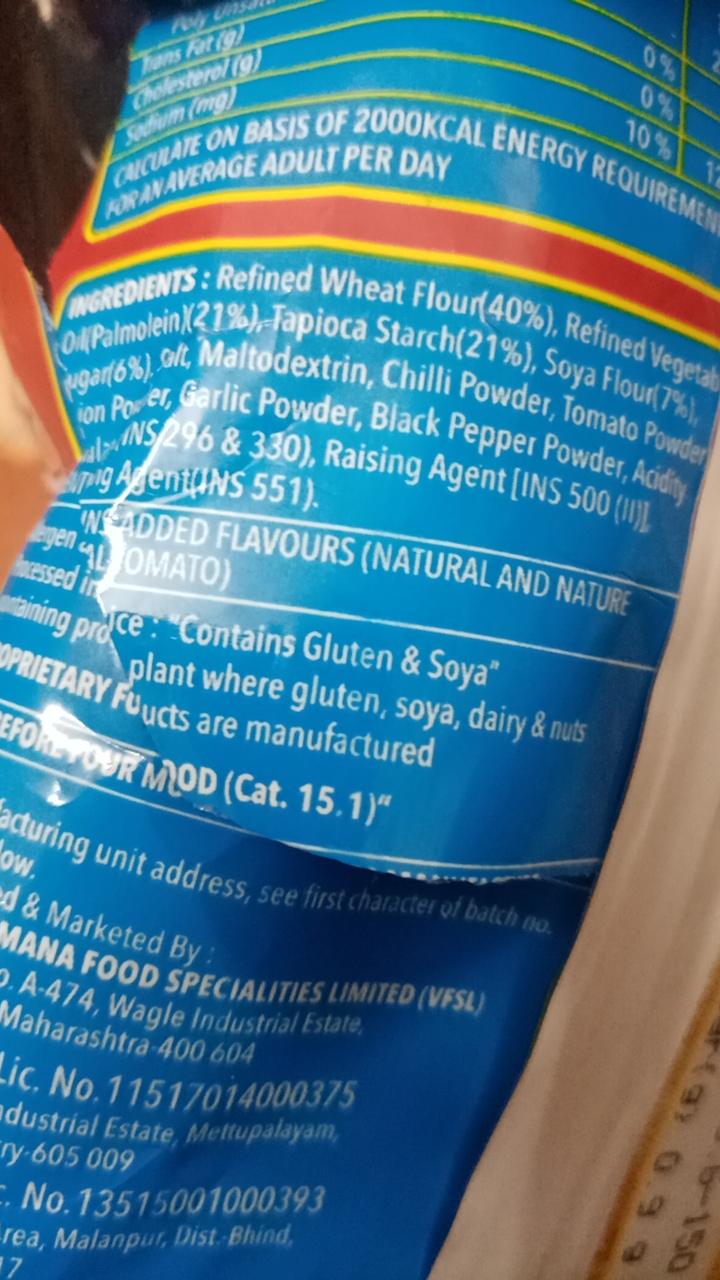
Barcode: 8901565002268
None
HALAL
📝 Reason: Most ingredients are plant-based and considered halal. However, generic terms like ‘acidity regulating agent’, ‘raising agent’, and ‘natural flavour’ are doubtful as their sources or processing methods are unclear and may involve haram/animal derivatives or alcohol. As Islamic dietary law (Quran 5:3) prohibits consuming doubtful items, these ingredients require further clarification, certification, or explicit source confirmation for a definite Halal ruling. (Ref: IFANCA, HMC, www.foodchemadditives.com)
📄 Certificates: Vegetarisch
Ingredients:
Details
Understanding the Halal Status of None
For those observing Halal dietary laws, understanding the Halal status of food products is essential to maintaining adherence to religious beliefs. Today, we delve into the product known as None, examining its ingredients and their Halal status.
Overview of Ingredients
None contains a variety of ingredients, primarily plant-based, which generally align with Halal standards. Below is a detailed breakdown of each component:
1. Refined Wheat Flour
Refined wheat flour is derived from the wheat plant and poses no Halal concerns. It’s widely used in various food products without any issue of contamination.
2. Palmolein
This is a form of refined palm oil, which is entirely vegetable-based and classified as Halal. Being derived from the palm tree, it contains no animal products.
3. Tapioca Starch
Tapioca, a starch derived from cassava, is another ingredient in None that is Halal-friendly. It’s a common thickening agent found in many food products.
4. Soya Flour
Soya flour is made from soybeans and is halal, provided it has not been contaminated with non-Halal substances. It is a great source of protein and widely used in various recipes.
5. Sugar
Sugar, derived from sugar cane or sugar beet, is generally accepted as Halal. There are no components in its production that could contradict Halal principles.
6. Salt
Salt is fundamentally a mineral (sodium chloride) and is thus overwhelmingly considered Halal.
7. Maltodextrin
This ingredient is typically plant-derived, coming from sources such as corn, potato, or wheat, and is generally Halal unless processed with haram enzymes, which is rare.
8. Chilli Powder
Chilli powder, made from dried chillies, is completely plant-based and Halal.
9. Tomato Powder
Tomato powder is derived from dehydrated tomatoes, making it Halal as well.
10. Onion Powder
This powder, made from dehydrated onions, is categorized as Halal.
11. Garlic Powder
Garlic powder is another plant-derived ingredient and meets Halal requirements.
12. Black Pepper Powder
Derived from ground black peppercorns, this spice is also Halal.
13. Acidity Regulating Agent
The status of this ingredient is uncertain. While it often includes citric acid (E330), which is typically Halal, other undisclosed components may not be. It requires more clarification.
14. Raising Agent
This term covers various agents, most of which are Halal. However, since the exact source is not specified, it calls for further clarity.
15. Natural Flavour
This broad ingredient may include alcohol or animal-derived sources, thus necessitating verification for Halal compliance.
Conclusion: The Halal Status of None
In summary, the core ingredients of None are broadly Halal. Yet, careful attention must be paid to certain components like the acidity regulating agent, raising agent, and natural flavors for complete assurance. For anyone considering their Halal dietary adherence, consulting with the product’s manufacturer for clarification on these remaining ingredients is crucial.
None carries a certification indicating it is ‘Vegetarisch’, but it’s important for consumers to confirm Halal status with credible certification agencies like IFANCA or HMC. Overall, the majority of None’s ingredients support a Halal lifestyle, affirming its suitability.
